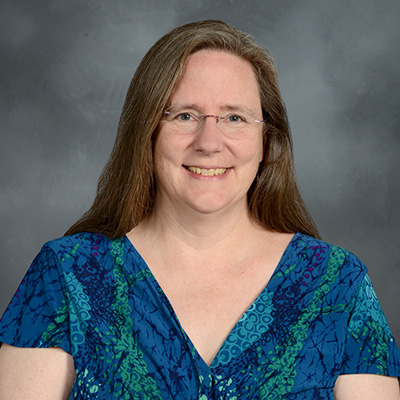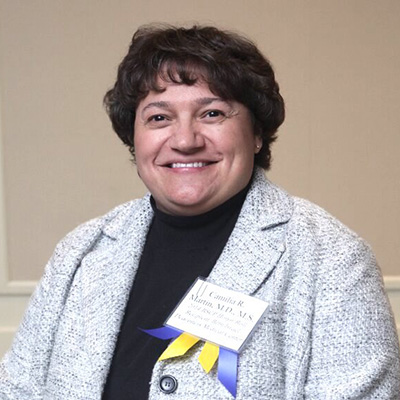More than 7,600 infants are born each year at the NewYork-Presbyterian Alexandra Cohen Hospital for Women and Newborns, making it the busiest maternity center in New York City. That sheer volume, coupled with advances in specimen collection, analytical techniques, and data science, have combined to support the transformative effort to uncover the biological mechanisms behind pregnancy-related medical conditions, along with factors that affect infant health.
NewYork-Presbyterian/
Foreshadowing Maternal and Infant Health
Although more than 10,000 babies are born in the United States every day, much remains unknown about how a mother’s health influences her fetus, and vice versa. Pregnancy can provide a glimpse into a woman's future health, predicting later conditions such as mood disorders and cardiovascular disease while also yielding insights into the future health of her child.
It is rare to have a linked mother and infant repository on this scale. Repositories do exist that include information on mothers and babies, but very few have linked data.
— Dr. Lauren Osborne
This repository of mother-infant dyads recently received IRB approval and is expected to launch in early 2024. Participants will be consented using a video, brochure, and digital consent through their electronic medical record or via an iPad in the clinic. Central to the study is the collection of clinical data and biological specimens, the analysis of which will help physicians better understand how and why a range of diseases develop. Armed with the new data, they hope to learn the most effective ways to prevent and treat these diseases.
Researchers will explore factors influencing the onset or progression of diseases and disorders such as postpartum depression, preeclampsia, and gestational diabetes. But the high volume of participants will also enable them to more closely study rarer conditions, such as autoimmune diseases. "Some autoimmune diseases get better during pregnancy and some get worse," Dr. Osborne explains. "What can we learn about the biological factors affecting those changes, and how might they be linked to a baby's health?"
The Power of Numbers
Dr. Martin recognizes the value in conducting this research in an institution with such a large volume of births. Before joining Weill Cornell Medicine in 2022, she directed a neonatal repository at Beth Israel Deaconess Medical Center in Boston, which has over 5,000 annual births. "Just from that population, I was able to answer multiple questions, collaborate with many groups, and have dozens of publications that resulted from that biorepository," she notes. "When I came here and saw the science, the proximity of so many different scientists, multiple groups seeking to understand systems biology and bioinformatics, and the dedication to women's and pediatric health, I saw so much promise and knew that this was the place to do this work."
The biological specimens collected for the study will be part of those drawn during routine perinatal care. Investigators will gather blood and urine samples from the mother during prenatal care and, if possible, breast milk during postpartum hospitalization; cord blood and placental tissue during delivery; and urine and stool samples from newborns' diapers. Thanks to advances in analytical techniques, very little of each sample is needed.
This is one reason why a project of this scale is possible now in a way that might not have been just a few years ago. "In the past, you needed to collect a large sample and conduct a very expensive test that might yield 10 proteins or 10 genes," Dr. Martin explains. "Now we just need a few drops of urine or blood and we get thousands of metabolites, thousands of genes, and thousands of proteins in each of those samples in a much cheaper way. The technology and data science we're able to do with smaller samples enables us to do this in an innocuous way, without interfering with medical care."
Data and specimens will be collected during prenatal visits and through the delivery hospitalization. Ideally, it would be beneficial to continue to collect data on infants as they grow through childhood, but not all babies stay with Weill Cornell Medicine pediatric practices after delivery. "We hope in the future that we could expand to include mother-infant dyads who remain in Weill Cornell Medicine practices. That would be fantastic," Dr. Osborne asserts.
Expanding Beyond Manhattan
As the details of clinical data and specimen collection are refined in the hospital and amongst Weill Cornell Medicine's eight Manhattan prenatal clinics and the project progresses, Drs. Osborne and Martin hope to expand it to include NewYork-Presbyterian's hospitals in lower Manhattan, Queens, and Brooklyn. Together with the Cohen Hospital, there are more than 15,000 births per year among these hospitals. Moreover, bringing the study to those hospitals will yield a highly diverse database that will include mothers and babies from more backgrounds. "By including those hospitals, we will have more participants who are Black and Latino, as well as Russian, Bengali, and East Asian immigrants, among others," says Dr. Osborne. "That is a huge benefit for research."
From data science to technology to sample analysis and systems biology, it takes a lot of us to come together and share our expertise. Collectively, we can start answering questions like no one else has answered before.
— Dr. Camilia Martin
Dr. Martin hopes the initiative will create a network of investigators and include a commitment to training the next generation of researchers to be able to carry on the project. She is also enthusiastic about building on our knowledge of the maternal-fetal environment to learn how to give back to premature infants what they would have received in utero to address nutritional deficits — a focus of her own work — to better understand the transition from the inside to the outside world.
"I think the days of being a solo scientist making observations and connections are waning because the technology is happening so fast. From data science to technology to sample analysis and systems biology, it takes a lot of us to come together and share our expertise," Dr. Martin concludes. "One person cannot be that all-knowing expert and make these connections on their own. I do think it takes these collaborations and partnerships to do this in the right way. Collectively, we can start answering questions like no one else has answered before."





